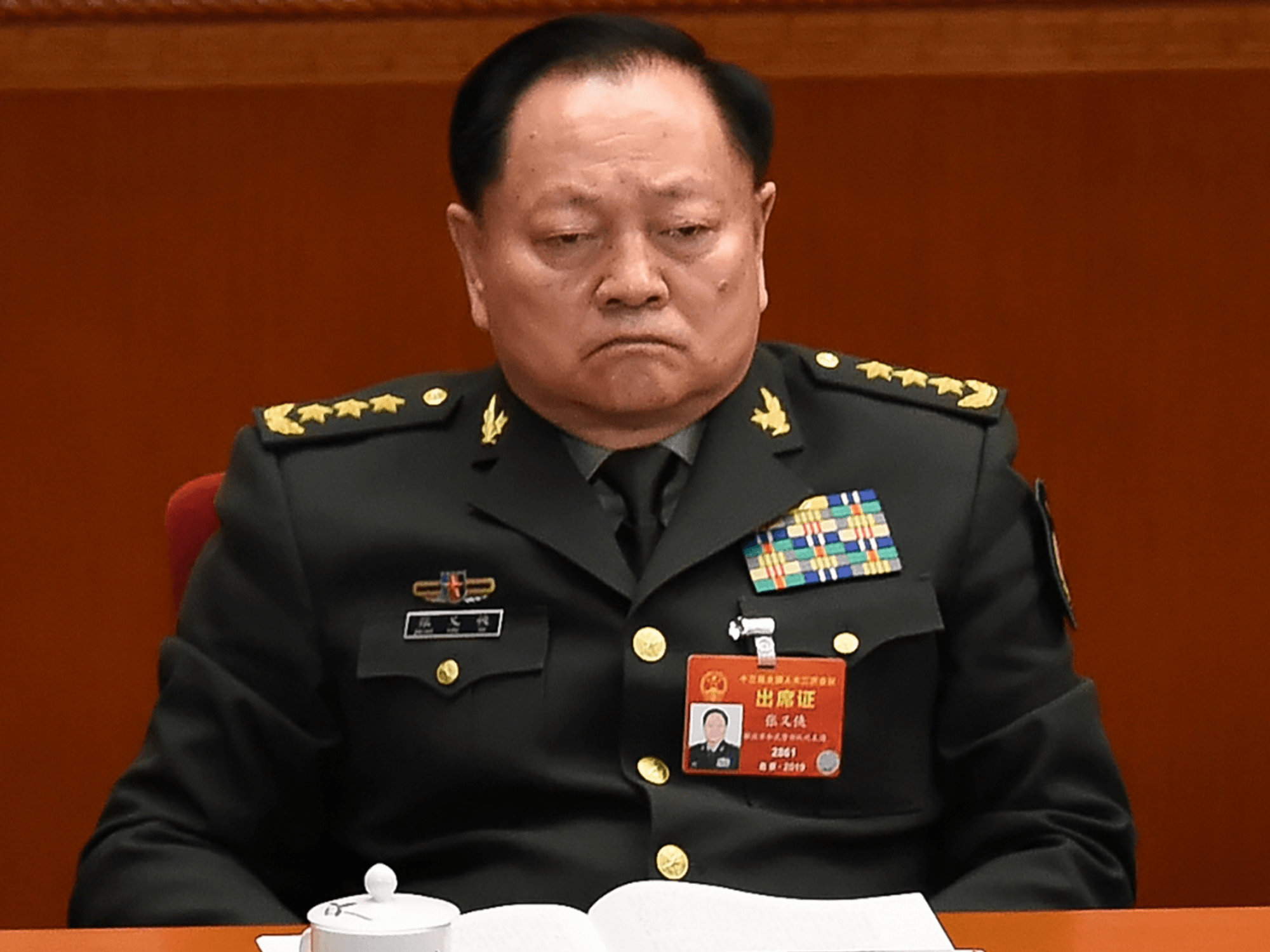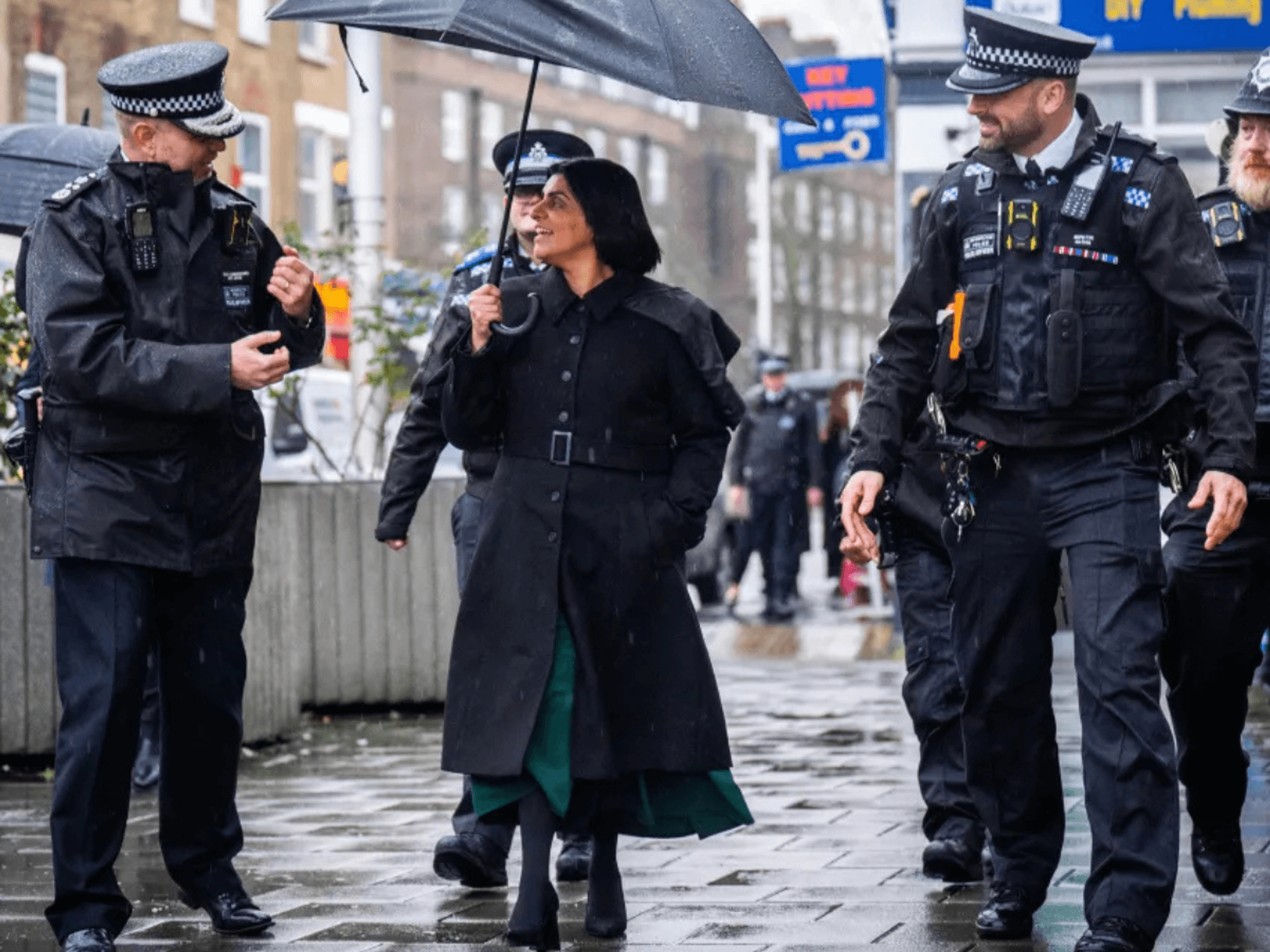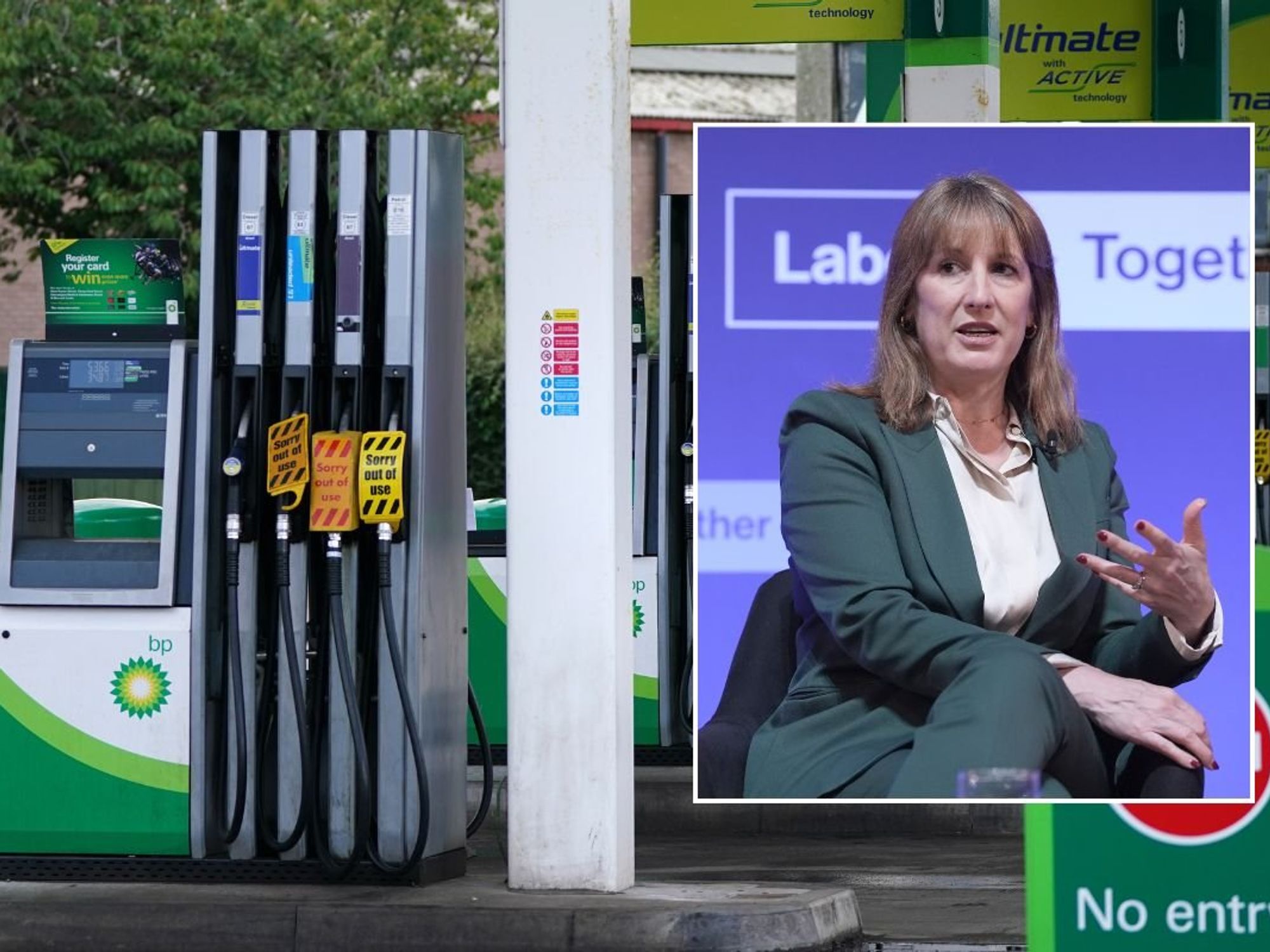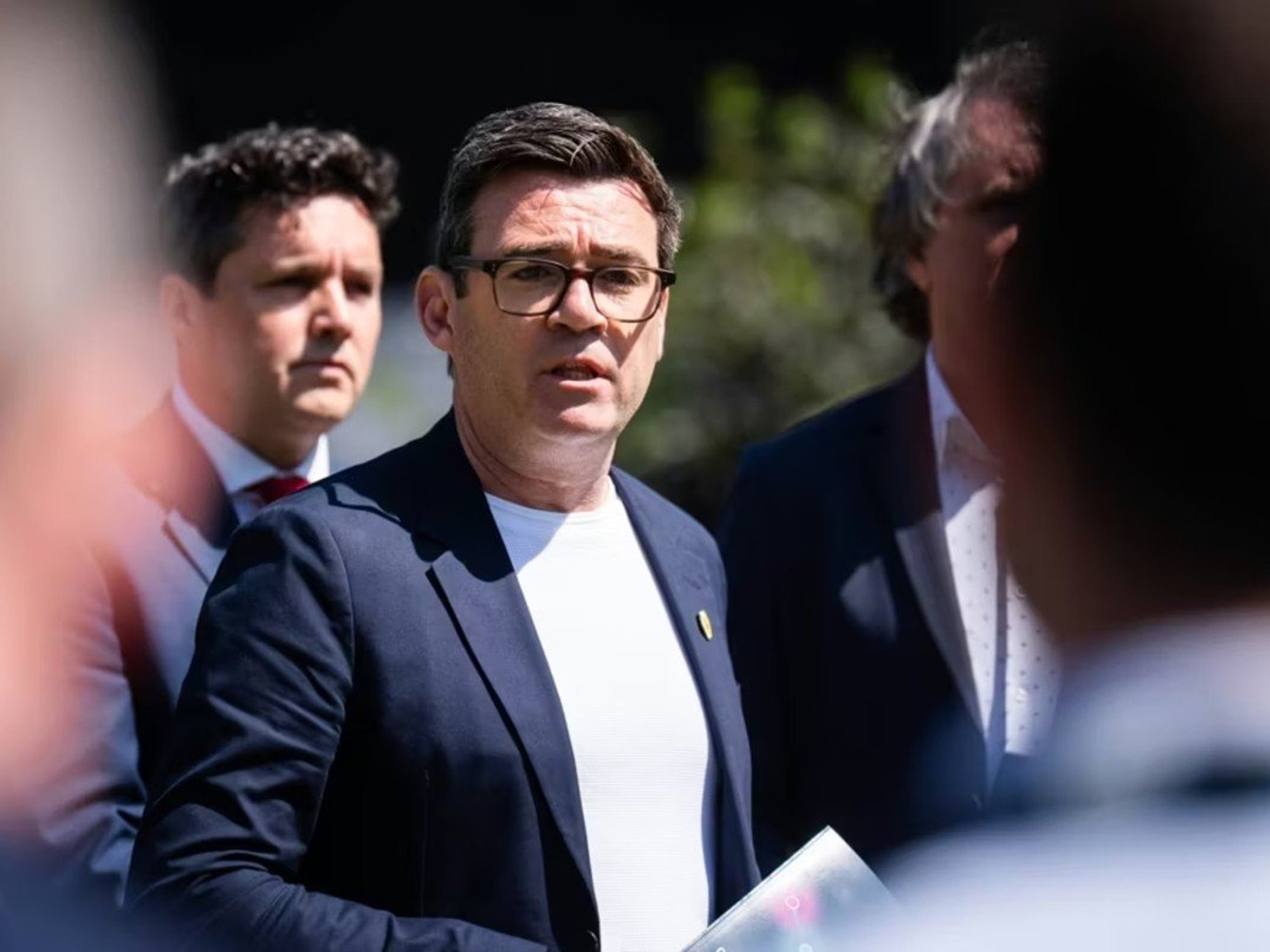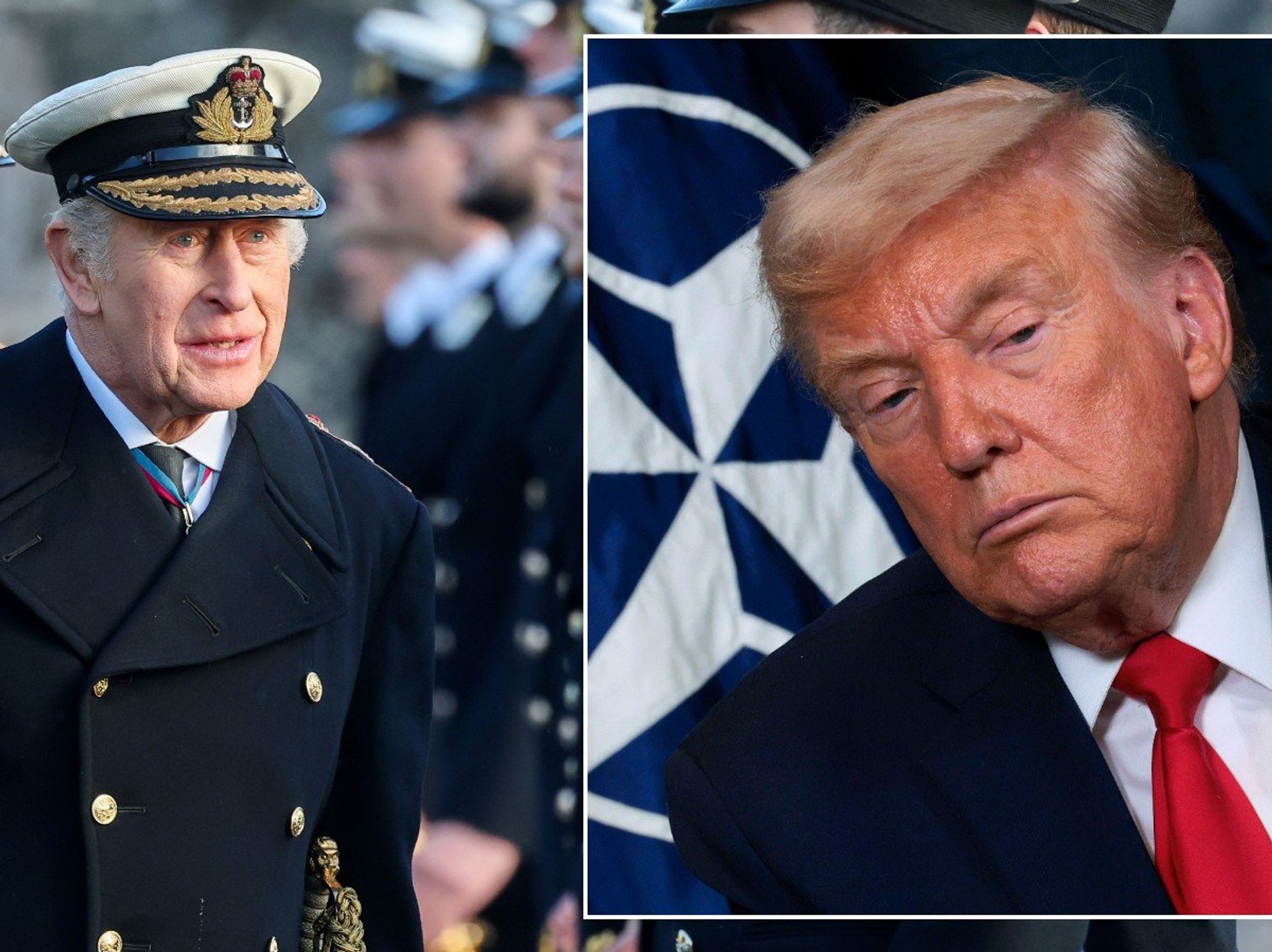REVEALED: How Nigel Farage could end Britain's migrant crisis within two weeks

The Reform UK leader is taking inspiration from Australia's efforts to end small boats arriving from Indonesia
Don't Miss
Most Read
Trending on GB News
Nigel Farage is convinced that Reform UK's plan to tackle the small boats crisis can stop Channel crossings within two weeks of receiving Royal Assent.
The Reform UK leader clarified his commitment after initially misspeaking during his keynote speech at the NEC last Friday.
Addressing 6,000 Reform UK members in Birmingham, Mr Farage said: "We will stop the boats and we will detain and deport those who illegally break into our country – doing what nearly every normal country around the rest of the world does.
"You cannot come here illegally and stay. We will stop the boats within two weeks of winning Government."
In a sit-down interview with GB News, the Clacton MP confirmed that Reform UK is sticking to a two-week timeframe, but insisted its starting point is once the legislation receives Royal Assent.
Mr Farage told the People's Channel: "Within two weeks of legislation being passed, we will stop the boats."
Hinting that the legislation could be accelerated through the Houses of Parliament, the Reform UK leader added: "Given the mood of the nation, the legislation needs to go through as quickly as it’s possible."
Following Mr Farage's comments, GB News has explored how Mr Farage could end one of the worst crises impacting Britain in 2025.

Reform UK party leader Nigel Farage =and Zia Yusuf at the launch of Reform UK's plan to deport asylum seekers, at Oxford Airport in Oxfordshire
|PA
Fast-tracked legislation: 'It's a national emergency!'
Mr Farage could look to use fast-tracked legislation, also known as emergency legislation, to secure Royal Assent.
Legislation enacted during the Troubles was passed within just two days of Parliament being recalled in 1998.
However, the special measure is often reserved for security concerns and fast-moving political developments.
It would appear Mr Farage intends to treat the small boat crisis in a similar vein, with the Reform UK leader describing events in the Channel as a "national emergency".

More than 30,000 migrants have crossed the Channel so far this year
| REUTERSA People's Vote? Unilateral withdrawal is Nigel Farage's only option
Mr Farage will also need to reject calls to hold a referendum on a key pillar of his migration proposal: leaving the European Convention on Human Rights.
Unlike countries like Switzerland and the Republic of Ireland, where referendums are effectively written into their respective constitutions, Britain has mostly looked to avoid holding nationwide polls on matters of such significance.
However, even if you look at the UK's recent history, holding a vote would take far too long for Mr Farage to secure the fast changes he is calling for.
The UK has held five referendums under the Political Parties, Elections & Referendums Act.
 Reform UK leader Nigel Farage speaks during the party's annual conference at the National Exhibition Centre in Birmingham | PA
Reform UK leader Nigel Farage speaks during the party's annual conference at the National Exhibition Centre in Birmingham | PAIt took just nine months after the introduction of the legislation for Britons to go to the polls in the much-overlooked AV poll.
The Brexit vote in 2016 took much longer, almost 60 weeks since the legislation passed and around three years since then-Prime Minister David Cameron committed to holding an in-out vote.
Polling also suggests Mr Farage is far from certain to win a vote of withdrawing from the ECHR.
A recent YouGov poll found 51 per cent of Britons support continued membership of the Strasbourg court, with just 27 per cent backing withdrawal.
 Home Office data has found that more than 170,000 people have crossed the Channel since 2018 | GETTY
Home Office data has found that more than 170,000 people have crossed the Channel since 2018 | GETTYWhat obstacles could stop Nigel Farage's masterplan?
If Mr Farage cannot secure fast-tracked legislation, Reform UK could face some lengthy debates in the Houses of Parliament.
Even if Mr Farage was lucky enough to secure a mega-majority, the House of Lords could prove problematic.
Reform UK does not have any members in the upper chamber, establishing a clear road-block to passing the proposed legislation.
The Salisbury Convention, which has been a long-standing doctrine since Labour's landslide victory in 1945, could help stave off a challenge.
However, the convention is not water-tight, with Liberal Democrat peers dissenting in 2005 over low voter turnout and regular disruption taking place when Theresa May failed to secure a majority in 2017.
The Parliament Acts of 1911 and 1949 add a similar bit of respite to Mr Farage, limiting just how many times the House of Lords can block the bill.
However, a period of parliamentary ping-pong could also give left-leaning lawyers the chance to mount legal challenges against Mr Farage's proposal.
Rishi Sunak suffered his own legal woes at the hands of both the Supreme Court and the ECHR.
Such challenges ultimately derailed the then-Prime Minister's hopes of sending any Channel crossing migrants to Rwanda.
It is hard to imagine a scenario where lawyers do not mount a similar challenge to Mr Farage, with the Reform UK leader vowing to deport 600,000 migrants and negotiate a returns agreement with the Taliban.
And that's not to mention that Mr Farage's plan to curb Channel crossings might not cut the mustard.
More From GB News






